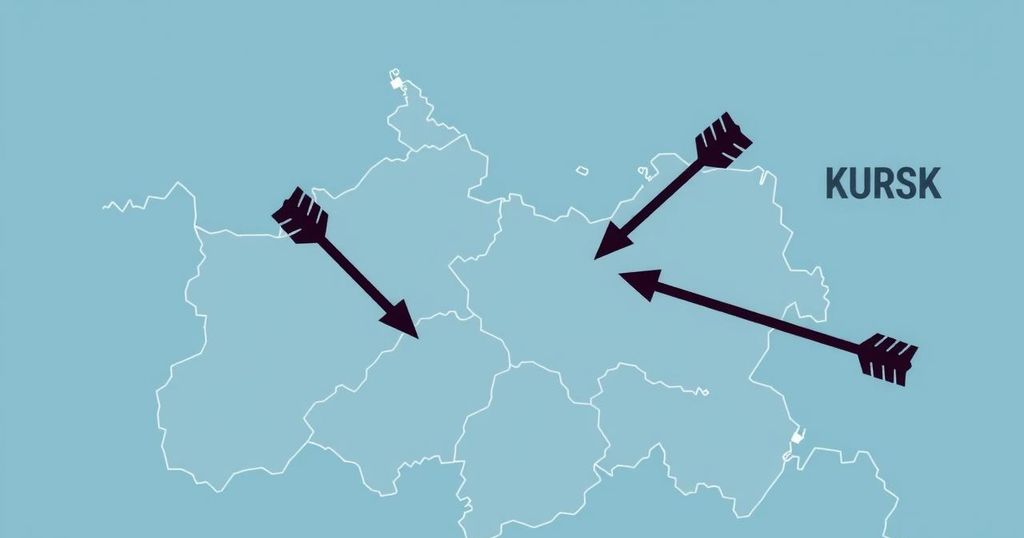North Korean Forces Propel Russian Military Gains in Kursk

The arrival of North Korean troops has bolstered Russia’s military position in Kursk, enabling them to retake vital territories from Ukraine. Following severe logistical challenges and aerial combat losses, Ukrainian forces have significantly diminished their presence in the region. The outcome of ongoing military operations will be crucial as Russia approaches symbolic celebrations and contemplates strategic objectives for future negotiations.
The recent influx of North Korean troops, coupled with Russian air superiority and significant numerical advantages, has enabled Russia to reclaim the town of Sudzha, the last Ukrainian stronghold in the Kursk region. Reports indicate that the Ukrainian forces have nearly evacuated from Kursk, retaining only minor territories along the borders, which account for approximately ten percent of their previously held area of over 500 square miles.
A prominent figure from the Ukrainian military project Deep State noted that, “Without North Korean troops, Russia cannot even hold onto its own territories with its own army.” The effectiveness and sheer numbers of the North Korean reinforcements were cited as critical factors in Ukraine’s retreat, which was exacerbated by supply route disruptions and aerial control losses.
The Ukrainian armed forces faced grave challenges, including devastating drone attacks from Russia that targeted their troop movements. An account from a soldier detailed how these drone offensives significantly diminished their resources and logistical capabilities, making it increasingly difficult to sustain operations in the region. Reports from military analysts suggest that the dynamics of the battle changed dramatically with the return of North Korean forces, which were now better organized and strategically integrated into Russian military operations.
Additionally, North Korean troops demonstrated remarkable operational efficiency, utilizing thoroughly detailed hand-drawn maps and sophisticated night-fighting techniques that posed further challenges for Ukrainian defenders. Amidst these adversities, some Ukrainian officials acknowledged the complexity of the situation while highlighting the strategic purpose of their efforts to divert Russian forces from other fronts.
Looking ahead, the Russian military campaign in Kursk is especially significant as it occurs shortly before Russia’s Victory Day celebrations. The outcome of this operation will be influenced by Russian leadership priorities: whether they aim to create a buffer zone or expand territorial control, thereby leveraging their gains in future negotiations with Ukraine.
In summary, the reintegration of North Korean troops into the battlefield has proven pivotal in Russia’s recent military successes in Kursk. The combination of enhanced troop numbers, air dominance, and efficient logistics has forced Ukrainian forces into retreat, all while significant challenges related to supply routes and aerial attacks have compounded their difficulties. As the situation evolves, the intentions of Russian leadership will determine the ultimate implications for future conflict dynamics in the region.
Original Source: www.washingtonpost.com








